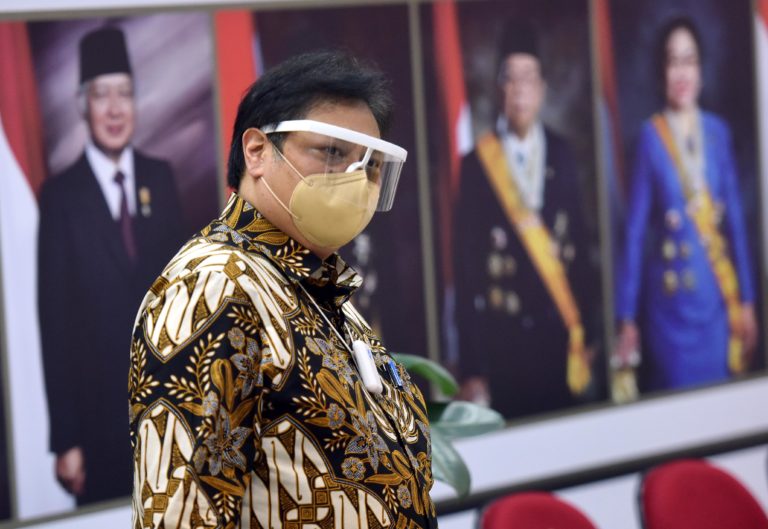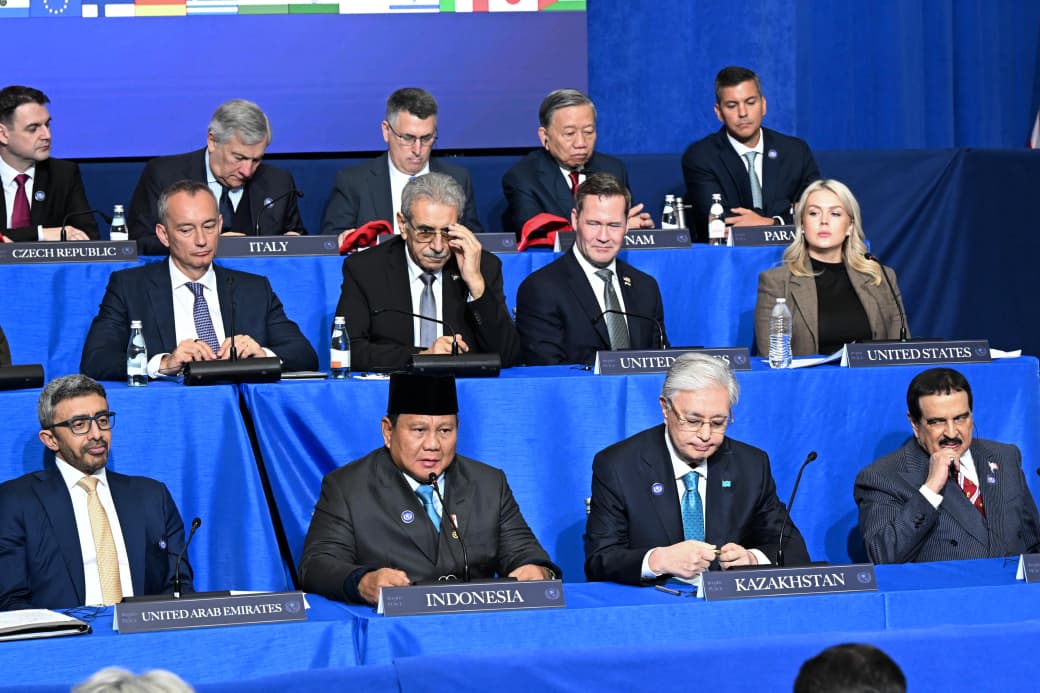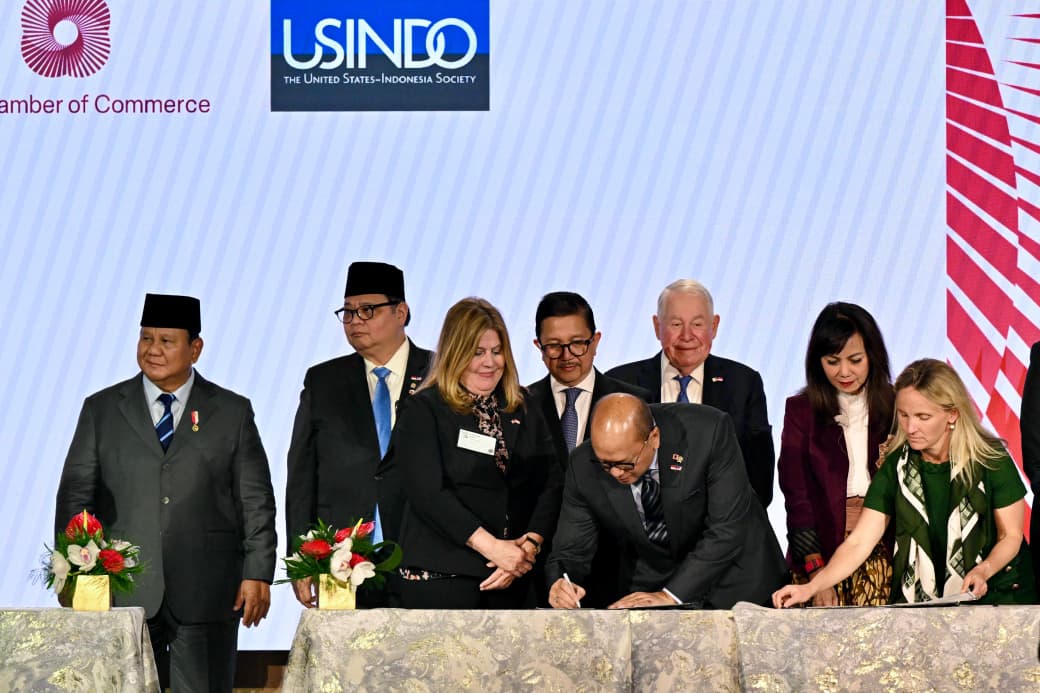Minister: Vaccine is a Game Changer

Coordinating Minister for Economic Affairs Airlangga Hartarto (Photo: Documentation of Cabinet Secretariat)
The arrival of 1.2 million doses of the COVID-19 vaccines in the country last Sunday (6/12) has given hope and trust to the public, Coordinating Minister for Economic Affairs Airlangga Hartarto has said.
“The presence of 1.2 million doses of vaccines in Indonesia (one of the first countries in ASEAN to receive the vaccine)gives hope and trust to the public. It also showed that the Government has managed to gain access to vaccines that have been initiated since the beginning of the pandemic in March 2020,” Airlangga said.
“The source of the problem during pandemic is health because people’s activities in social and economic fields have been affected by the health. So, vaccine is the game changer as it will solve two problems at once, namely health and socio-economy,” he added.
For the record, J.P. Morgan estimated that Indonesia’s economy in 2021 will grow by 4 percent, supported by consumption of 2.2 percent, investment of 1.2 percent, and net exports of 0.7 percent.
The J.P. Morgan also projected that the flow of foreign funds will return to Indonesia which driven by positive sentiment, namely the development of vaccines as a key market driver, and the enactment of the Job Creation Law as the biggest policy reform since 1998, which aims to encourage Foreign Direct Investment (FDI) and Indonesia’s transformation towards Asian manufacturing countries and technology hubs.
In addition, the J.P. Morgan projected that the Indonesian stock market will continue to grow positively, driven by recovering economic activity, supported by government stimulus and the implementation of the Job Creation Law.
Currently, the Indonesian economy continues to show a recovery trend after contracting by -5.32 percent (YoY) in the second quarter of 2020, and improving in the third quarter to -3.49 percent (YoY), or growing by 5.5 percent (QtoQ ).
Several sectors predicted to be the key to economic recovery are the financial sector, infrastructure / industry, and digital economy-based corporations as medium-term catalysts.
Indonesia is believed to be experiencing a digital economy and technology-based corporate boom in the future. Indonesia’s internet economy currently has a capacity of US$50 billion which consist of 5 percent of GDP and more than 10 percent of stock market capitalization, becoming one of the fastest growths in the world.
Currently, Indonesia is home to 5 unicorns (Gojek, Tokopedia, Bukalapak, Traveloka, OVO) which are believed to be the catalyst for investment as the new economy.
The Indonesian Government is also preparing an Investment Management Institution, namely the Sovereign Wealth Fund (SWF) that aims to be an alternative financing for infrastructure project development.
“Currently, the Government is finalizing 3 RPPs (drafts of Government Regulation) related to the SWF, namely the Investment Management Institution (LPI) RPP, the LPI Initial Capital RPP and the LPI Tax Treatment RPP. The LPI will manage investment, so that it will increase and optimize the investment value in the long term in order to support sustainable development,” Airlangga explained.
On the other hand, the Job Creation Law is a long-awaited structural reform which is expected to be an accelerator of Indonesia’s economic growth.
One of the main objectives of this law is to encourage job creation through providing business and investment facilities.
“Job creation is very urgent to do, because 70 million of the 130 million workforces in Indonesia still work in the informal sector. Moreover, Indonesia has the potential for a demographic bonus in the next 10-15 years, so increasing investment is very important for job creation,” said the Coordinating Minister.
Market players believe that the implementation of the Job Creation Law will provide many conveniences for doing business and certainty in investment management up to the local government level.
Currently, the drafting of implementing regulations of this law is continuously being carried out by opening the participation of the public and stakeholders as widely as possible. Strong coordination support between parliament and the Government is also the key to the successful implementation of the Job Creation Law. (PR of Coordinating Ministry for Economic Affairs/ UN) (EST/LW)







